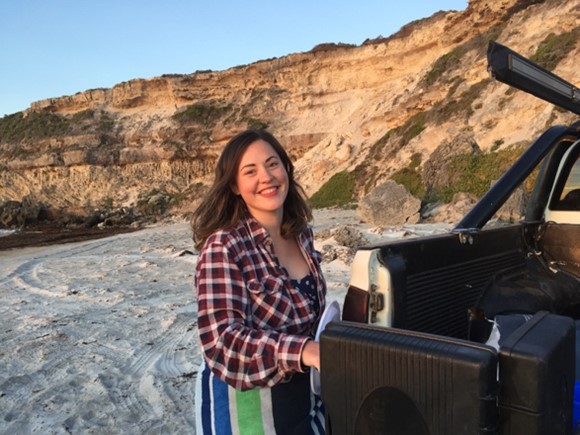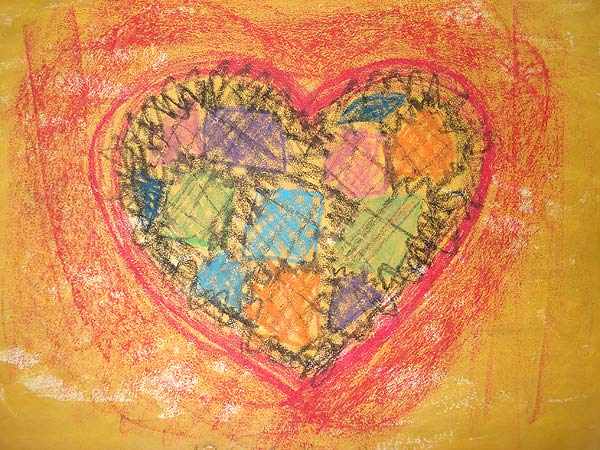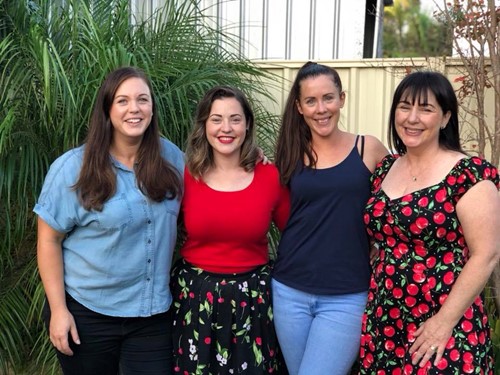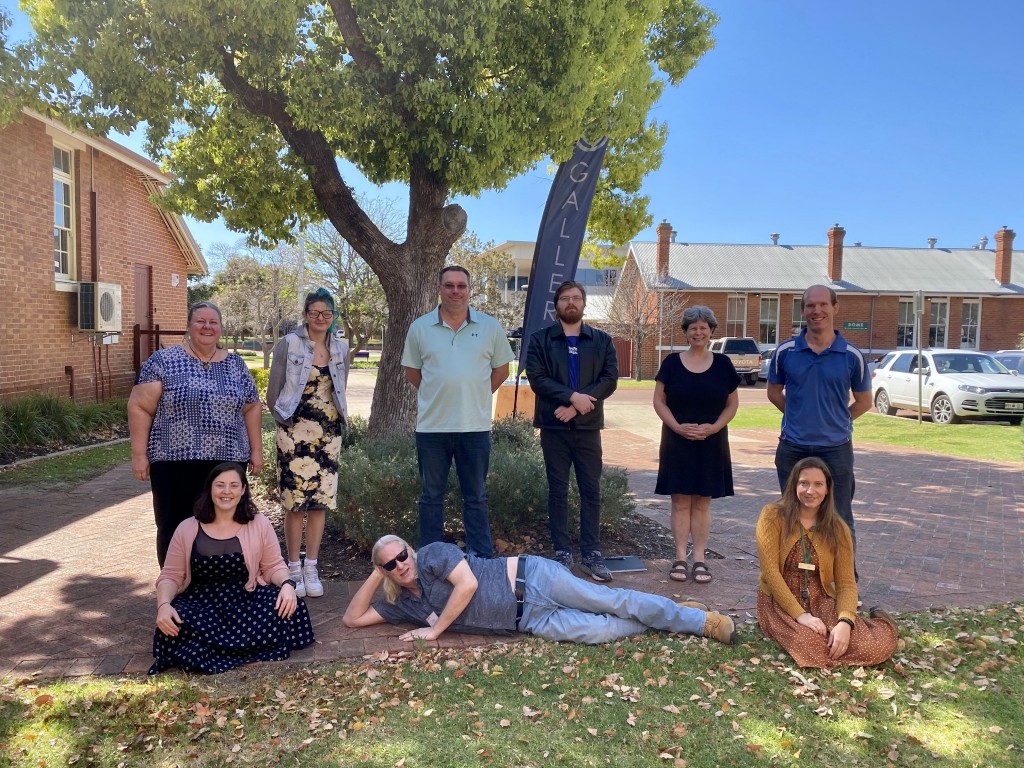
As a young girl, I loved playing make believe, watching movies and bribing my family to watch my one woman shows in the lounge room.
I was a quirky kid and was incredibly close to my Mum and two sisters.
I experienced several challenges in early life which had not been processed, talked about, or healed.
In moments of high stress, I would hear voices. I also experienced several episodes of psychosis before the age of 12.
Throughout my high school years, I experienced severe distress due to mental health issues such as depression and anxiety.
At the age of 14 I felt that life was overwhelming and unmanageable.
At the age of 14 I lost hope.
At the age of 14 I tried to end my life.
What helped me at this time was demonstrations of compassion, non-judgement, and unconditional love. I was able to talk openly to my Mum about my feelings of distress and my suicidal thoughts. She asked me directly about my thoughts of suicide and my plans and helped me when things were overwhelming. Following my attempt, she gave me a day off school, bought me a bunch of flowers, took me to the movies and treated me to a yummy lunch.

I continued high school for a few more years, but my mental health continued to decline.
At the age of 16, I was having daily panic attacks and couldn’t cope with the school workload. I was engaging in Non-Suicidal Self-Injury and my relationship with my Mum and two sisters became strained.
Mum organised for me to visit a GP to seek answers, and I was diagnosed with clinical depression, generalised anxiety, social anxiety, Obsessive-Compulsive Disorder (OCD) and Hoarding. I was also referred to a Clinical Psychologist where I was diagnosed with Attention Deficit Disorder (it had taken 11+ years of schooling for this to be picked up).
Despite finally having an answer and despite the best efforts of those around me, I couldn’t continue with school and so I dropped out of year 11 during the first semester. I enrolled in TAFE for a short time to meet Centrelink requirements, but I still couldn’t manage, and I soon left TAFE as well.
For the next two years I rarely left home.
I would regularly binge eat and quickly gained 40kgs. I felt more alone, more ashamed and more hopeless than I ever had in my life. During this time of social isolation and emotional distress, I was reluctant to seek help and defiant when mum tried to encourage me to get support.
My friends were dating, studying, and working, and I did not want a support worker! I felt pathetic that someone would be “paid to be my friend”. Behind the scenes, my Mum desperately searched for services that could help me, but as we lived 50km outside of Perth, the support options were limited.
I was experiencing intense suicidal ideations constantly and due to my hoarding, the house was becoming un-liveable and we were reaching crisis point. Mum eventually gave me two options: “A support worker is coming to meet with you, do you want to meet them on Tuesday or Thursday?” she asked. I swore and yelled for a few days telling Mum to leave me alone and to accept me for who I was. Ultimately, I decided on Thursday… and guess what? My support worker was AMAZING!
My support worker was kind, considerate, funny, cool, and incredibly patient.
I had no interest in her taking me shopping, helping me to clean my house or to join groups. The only thing that didn’t cause me to have panic attacks was going to the movies, so that’s what we did most weeks.
Whilst still in school, I had visited several counsellors and tried Cognitive Behavioural Therapy (CBT). And while CBT is an effective treatment for many, it was not the right option for me. Art therapy, however, was perfect for me at this time.
When I couldn’t find the right words – I picked a colour.
When I couldn’t articulate my emotions – I painted a picture.
When I couldn’t handle the physical symptoms caused by mental illness – I turned them into art.

I had found a new coping strategy that was healthy and proved to be an incredible outlet for processing my feelings and allowing me to step back from my overwhelming thoughts.
The Support Worker funding came to an end and I said goodbye to my support worker, but not before I had built up the confidence to enrol in a local Australian Sign Language (Auslan) class run at a Community Centre. I also returned to church, began volunteering in the youth group, and started singing in the band. My church community supported me, loved me and accepted me fully.
But I still needed professional support.
Mum continued searching for funding and services to support me, and eventually we had success. I joined Richmond Wellbeing’s Personal Helpers and Mentors Program (PHaMs), which supported me from 2011-2014. I had a few different support workers over that time, all of whom were incredible! They helped me focus on my strengths, to break down my goals and regain a sense of control. I also attended Peer recovery groups where I met other people who were going through similar experiences and where I learned incredibly valuable insights about mental health and recovery, which I still hold dear to this day.

Learning as a family
Mum also began seeking support for herself.
Mum made a phone call to MIFWA’s carer peer support officer who listened to what was going on and offered support. Mum and my sisters attended a 12-week carer peer group called Building a Future (BAF) where they learned about different mental health issues, what recovery from mental illness can look like, and they were reminded that the person they loved was not gone but was currently covered by the cloud of severe mental health symptoms. Mum eventually went on to become Manager of the Carer Services team at MIFWA. Focusing on strengths, opposed to diagnosis.
After a few years maintaining my support networks, I had a number of goals for my future. I began walking and in so doing fought my way out of the ‘morbidly obese’ weight category. I also enrolled in TAFE to further my interest in Auslan, where I gained a Diploma of Auslan and an incredible group of friends, as well as overwhelming love and support within the Deaf Community.
I still lacked confidence, particularly around work.
During an early support session with my PHaMs worker, she asked me to explore what recovery looked like for me, I explained that gaining employment would be the ultimate ‘sign of recovery’ because it felt so foreign and so impossible. One way I got around my lack of confidence about working was by starting my own hobby business making cakes. I also began studying Education Support and a Certificate IV in Mental Health. While I was studying, I received a phone call from MIFWA to explain that they were looking to employ a Community Mental Health Worker with Auslan skills. I was interviewed and even went on some buddy shifts with MIFWA’s CEO to learn the ropes!
After receiving my MIFWA contract to read over, I marched into the Centrelink office and cancelled my Centrelink payments. Once signed on to work with MIFWA, I was invited to participate in a workshop where I learned how to share my Lived Experience Recovery story with carers. I also became a Peer Facilitator for the My Recovery and Wellways to Work program and am now an accredited Instructor in Mental Health First Aid (standard, youth and teen), as well as a SafeTALK trainer (Suicide Alertness for Everyone). I have also designed and co-designed other programs including CHIME.

I cannot express how grateful I am.
I am grateful to the various community services who walked alongside me throughout my journey, to my family who supported me through some very tough and turbulent times, especially when I was not easy to get along with, and to the friends I made along the way who saw the best in me.
I am especially grateful to MIFWA.
MIFWA helped my family, they helped me, and they continue to help thousands of individuals and families in the community today.
I am so passionate about the work I do and cannot believe that I am employed to do this important work.
Share

